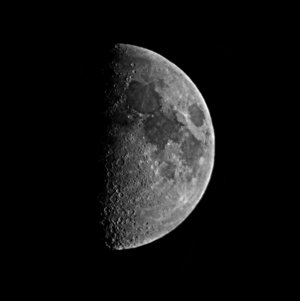On Friday, Italy officially took the first step to enter NASA’s Artemis mission, which aims to bring humankind back on the moon by 2024 and establish a permanent base for future space exploration – including Mars.
The undersecretary to the prime minister with mandate for space affairs, Riccardo Fraccaro, met virtually with NASA’s Administrator Jim Bridenstine. The two signed a memorandum of understanding (MoU) that lays the groundwork for future technical cooperation.
Alessandro Profumo, CEO of the Italian aerospace company Leonardo (which is partly owned by the government), commented that Italy’s economic return for future deals would amount to at least €1 billion, not accounting for the positive impulse on production lines.
“Other than extremely important contributions on the technical and scientific level, our country will supply the lunar mission with the technological means to build landers and shelters,” said Mr Profumo.
“We’re entering a new gold rush, located in the space beyond the atmosphere, starting from the lunar surface” commented Roberto Vittori, astronaut, Italian Air Force general and space attachè at the Italian Embassy in the US.
As the so-called space economy dawns, “the MoU intends to bring Italy at the centre of the stage while confirming the very close relationship between Italy and the US,” he told us.
Aside from the compelling narrative and the economic value, this MoU is also charged with geopolitical significance. First and foremost, it was a field choice, one driving Italy closer to the US and farther from China at a juncture where the tech and arms race is reaching beyond the atmosphere.
The signing happened mere days from the visit of US Secretary of State Mike Pompeo to Rome.
Formiche.net reached out to Marcello Spagnulo, aeronautical engineer, president of MarsCenter and author of Geopolitics of Space Exploration (translated). His clear enthusiasm for the MoU was softened by a healthy dose of pragmatism when he argued that this first step, though important, must be a launchpad for “specific implementing agreements to be signed in the coming months.”
Creating such an important strategic and industrial link between the US and Italy allows the latter to re-equilibrate the balance of powers within the European Space Agency (ESA), noted Mr Spagnulo, and it also freezes the 2016 deals between the Italian Space Agency (ASI) and the Chinese Academy of Science.
If this MoU will kickstart the creation of implementing agreements, Rome will further consolidate its strategic alliance with Washington, where private enterprises support the government’s geopolitical objectives. “The militarisation of space, sadly, is not the near future but rather the present, and the programs of lunar landing have a strong mediatic impact, while effectively ‘disguising’ strategic objectives,” said Mr Spagnulo.
The MoU is yet another piece of Italy’s decoupling from China, argued Carlo Pelanda, professor of economic geopolitics at Rome’s Guglielmo Marconi university. “The Chinese presence in technology and the matter of ports is yet to be solved,” he said, referring to Italy’s crackdown on Chinese 5G tech and the Chinese investment in strategic Italian ports, stalled for the time being.
“Seeing the recent moves on 5G [the Chinese] are very worried, and the failure of foreign minister Wang Yi’s mission worried them even more,” continued the expert, highlighting how Mr Pompeo’s upcoming visit is a way of testing Rome’s feel for dealing with the Americans and cementing its realignment with the US.








